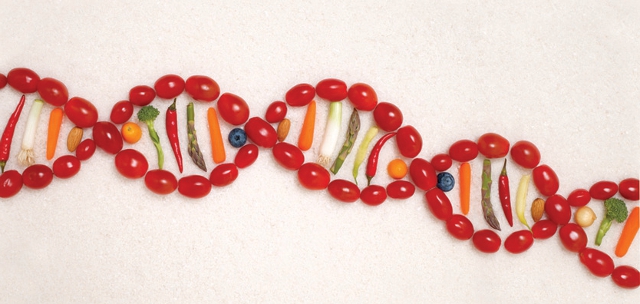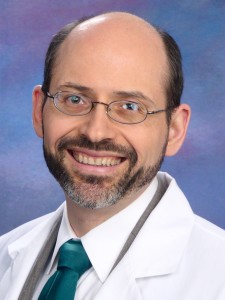

Destiny or Free Will: Are we predestined to die or suffer from our genetic disease? michael greger cancer
Can we actually prevent the big C from happening in our lives? michael greger cancer
What about heart attack, diabetes, rheumatoid arthritis, and so on?
What if, we can alter our genetic expression and bring out the best in our genes?
This means… a healthier, more vibrant, and longer life, without onerous medical bills, drugs, surgery and most importantly, time away from your favourite activities and loved ones.
If the above sounds interesting to you, then today’s interview with Dr. Michael Greger is right up your alley (yes, that’s a link to his Wikipedia entry).
Dr. Michael Greger is a renowned physician specializing in clinical nutrition, author, and internationally recognized professional speaker on on various public health issues. Dr. Greger is also the Founding member of the American College of Lifestyle Medicine, the Director of Public Health and Animal Agriculture at the Humane Society of the United States and Humane Society International. Dr. Greger’s work can be found at NutrionFacts.org (One of my all time favourite websites!).

In Part 1 of this interview, we’ll be addressing:
- Dr. Greger’s journey to a plant-based diet michael greger cancer
- How you can reverse life threatening diseases without surgery or drugs
- Why contrary to popular belief, “everything in moderation” may not be the healthiest for you
- Why you may want to rethink about grass-fed meat (Twinkies, anyone?)
- Why and how we can take our health into our own hands, even if we’ve been given bad genes
This is a multi-part series, please stay tuned here for updates on the next part! I’ll also be releasing the video to the interview in the last part of this series.
Let’s get to it!

Dr. Michael Greger’s Journey to a Plant-Based Diet michael greger cancer
Q: Thanks a lot for taking the time to speak with us. Can you please summarise your background and your journey to a plant-based diet?
Dr. Michael Greger: Sure, it was my grandma actually, I was just a little kid, my grandma got diagnosed with end-stage heart disease. But she already had a number of bypass operations… basically kind of run out on the plumbing at that point.
So, my grandma was sent home to die and confined to a wheelchair. And then my grandma heard on 60 Minutes about this guy Nathan Pritikin that ran this lifestyle medicine clinic. My grandma went to see him.
Pritikin put her on a plant-based diet with exercise, and she lived another 31 years to enjoy six grandkids including me. So, she was diagnosed ’65 and was able to hang on for a number of few decades, and that’s what inspired me to go into medicine.
And that’s what I thought all medicine was. Like you know you can get really sick, you are on a wheelchair, you can’t move and then someone like lays hands and you are walking around, ten miles a day.
And little did I know later, that’s not how most medicine is practiced these days. So, that’s why I really turned my attention towards practicing lifestyle medicine, or using natural modalities to treat the cause of the disease rather than just treating the symptoms.
Q: And when did you discover the benefits of a plant-based diet?
Dr. Michael Greger: Well, first, when I was a little kid, seeing my grandma all of a sudden miraculously get better with a plant-based diet.
Most importantly, in 1990 when Dr. Dean Ornish published his landmark lifestyle heart trial, which proved for the first time in angiographic evidence that you could reverse heart disease, a number one killer of both men and women.
Dr. Dean Ornish showed that one can reverse heart disease without drugs and surgery, just with healthy plant-based diet and other healthy lifestyle behaviours. His research was published in the most prestigious medical journal in the world.
I was like “Oh, okay number one killer. This reverses number one killer, let’s eat like this.” And so I have been eating plant-based diet for 24 years, now.
What I find interesting is that the research was published two decades ago, and yet people are still dying from heart disease, not just a few, but hundreds of thousands of people…
We have the cure. We have the miracle cure, yet hundreds of thousands of people continue to die unnecessarily. So, that has just driven me harder, to go out there and try to spread this life saving information as far as I can.
“Everything in Moderation?” michael greger cancer
Q: When I speak with people, a lot of people think that moderation, balance is key, and that it’s actually healthy to have a “balanced” diet with meat, fish, eggs and dairy. How does your research support otherwise?
Dr. Michael Greger:
Moderation kills. You were just describing the American diet!
You have a little bit of this, you eat a little bit of that, and then you die… of heart disease. Number one killer. Or you die of cancer, number two killer. Or COPD, or stroke; run down the list, type two diabetes, hypertension, these are diseases that need not occur.
Look at the populations where such diseases don’t occur as frequently. Such people don’t eat moderation diets: they eat nearly strictly plant-based diets.
If you look at rural Africa and China, these people are eating mainly plants.
Meat was a celebration kind of food reserved for holidays. The day-to-day food these populations ate was centred on mainly grains and vegetables. And they did not get these chronic degenerative diseases that are laying waste to Americans.
If I have a smoking patient that came to and said all right I’ll keep my smoking to one and a half pack a day, everything in moderation, is that healthy? No.
If something is bad for you, you try to minimise it. If something is good for you, you try to maximize it.
You know, I’m going to wear my seatbelt half the time. Let’s be moderate about it. If it damages your health, you don’t do it. If it is a health’s behaviour, you do it. If you don’t adopt the healthy behaviour, at least acknowledge that this is the thing to be done if you really cared about your family’s health.
Grass-Fed Meat and Eggs: Friend or Foe?
Q: Sure, what’s your opinion on grass-fed meat and eggs then?
Dr. Michael Greger: They are better than, meat and eggs from conventional factory farm.
There is a study I profiled in one of my videos about comparing the effects of wild caught meat to supermarket meat. The research was done in Australia so they used kangaroo meat, which is like venison of Australia. They found that the spike of inflammation one gets within the hours of eating conventional meats was less.
People actually got less inflammation eating kangaroo meat than the store bought meat.
Great, but the point is: We don’t want to eat foods that cause any inflammation. Most whole plant foods are anti-inflammatory.
So, are grass-fed meat and eggs better than conventional meat and eggs? Sure.
But grass-fed meat and eggs are like low fat Twinkie or a low tar cigarette.
“Okay, low fat Twinkies, are they better?” Begrudgingly yes. Grass-fed meat is better than conventional meat, but it’s not like I’m going to tell anyone to go out and eat it.

Source: Coloribus.com
How Diet Can Change Genetic Expression
Q: Great. We’ll explore the role of inflammation in a little bit. Do you believe that our diet can really change our genetic predisposition?
Dr. Michael Greger: Well, it changes our epigenetics and genetic expression. So, it doesn’t change the genes itself, but how genes are expressed. For example, a cell in our heart has the exact same DNA complement as the brain cell, and a muscle cell and a skin cell. But a skin cell is totally different than a nerve cell. Why?
It’s because different genes are expressed.
So, we can dramatically change the expression of our genes and the health consequences by what we do with our diet, exercise, and lifestyle choices.
So, take the Alzheimer’s gene, APOE e4 as an example. If you have one copy, this may double or triple your risk. If you have two copies, it may be 9x the risk of getting Alzheimer’s.
If you look around the world, the highest rates of the APOE e4 are in Nigeria, they also have some of the lowest rates of Alzheimer’s in the world. What solves the paradox?
What you have to do is know what APOE e4 does. What is it? It’s the principle cholesterol carrier in the brain. That’s what the protein does. So, if your cholesterol is low enough, it may not matter what your genetic component is.
And, indeed what the Nigerians were eating are traditional plants-based diets.
No matter what bad genetic cards we’ve been dealt, we can still reshuffle the deck with diets.
And, indeed what the Nigerians were eating are traditional plants-based diets.
This brings us to the end of part 1 of this series with Dr. Michael Greger. In the next parts, we’ll be addressing nutrition for athletes, controversial health foods (Is soy good for you? What about spirulina?), nuts (Can nuts make you fat?), and supplements (Must-have, or waste of money?).
Want more? Please stay tuned here for updates on the next part.
About Dr. Michael Greger: Dr. Michael Greger is an internationally renowned physician specialising in clinical nutrition, author, and globally recognised professional speaker on on various public health issues. Dr. Greger’s work can be found at NutrionFacts.org
Top photo courtesy of now.tufts.edu



